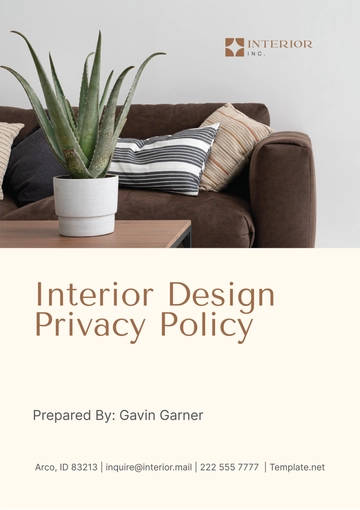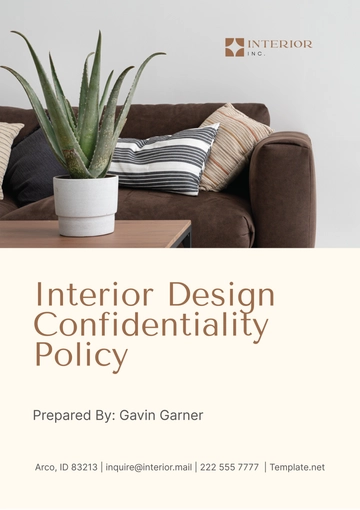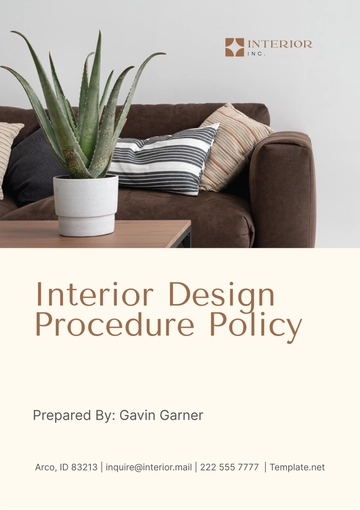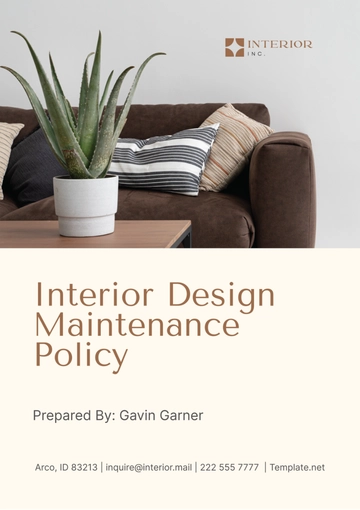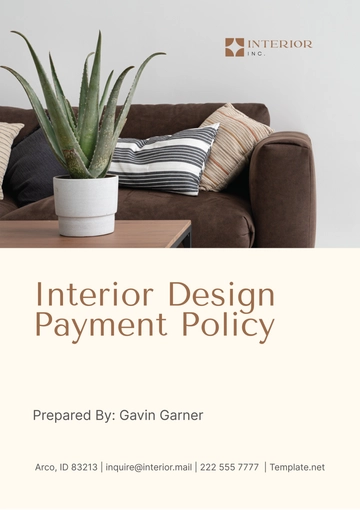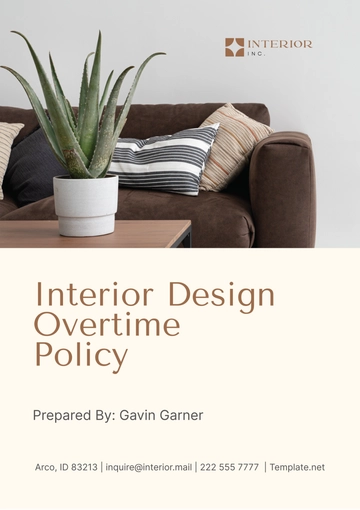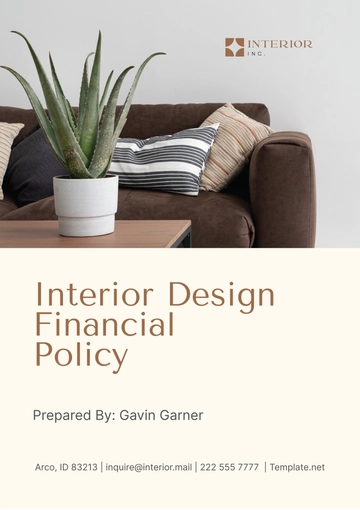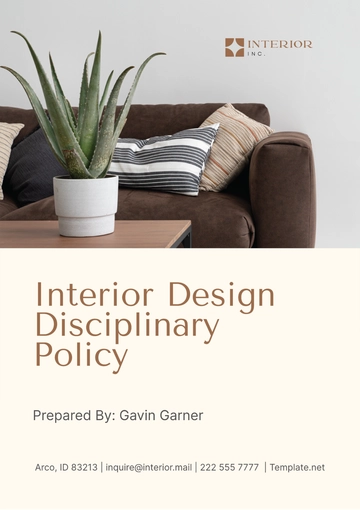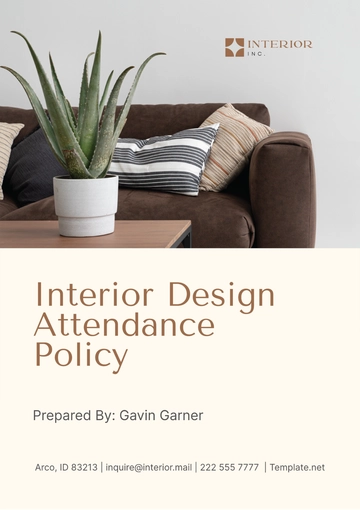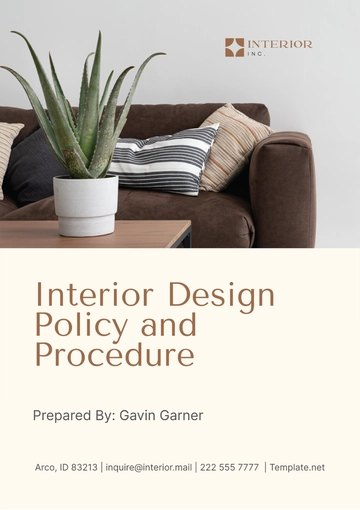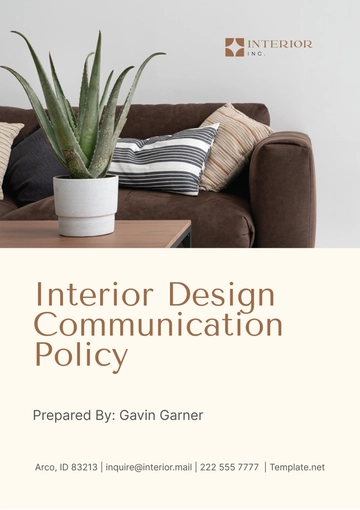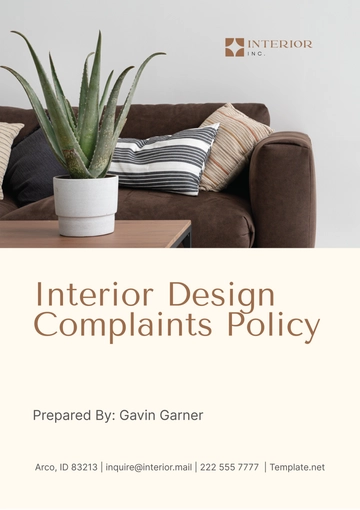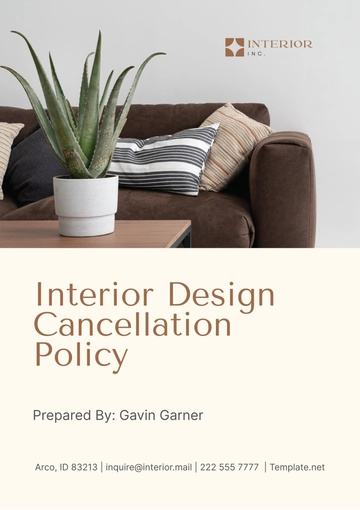Free Interior Design Financial Policy
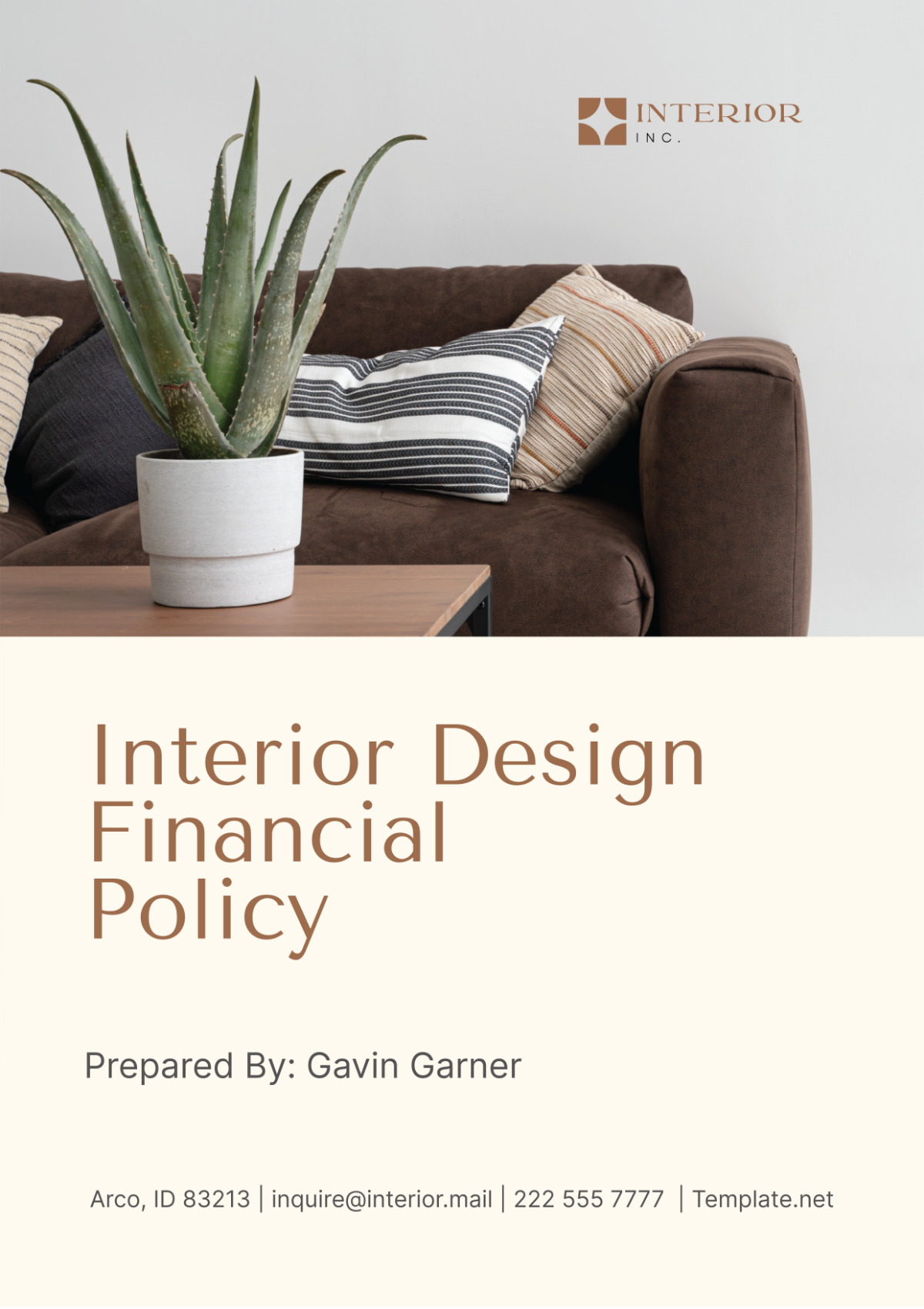
Effective Date: January 1, 2050
This Interior Design Financial Policy is crafted by [YOUR COMPANY NAME] to oversee financial operations and commitments inherent in the interior design projects we manage. This document serves to guarantee transparency, efficiency, and client satisfaction throughout the financial aspects of projects from their inception to their conclusion.
1. General Provisions
1.1 Purpose
The purpose of this policy is to establish consistent, reliable procedures and guidelines for managing the financial transactions associated with our interior design projects. It aims to ensure that all financial activities are conducted efficiently, legally, and in a manner that supports and aligns with the strategic objectives of [YOUR COMPANY NAME]. This includes maintaining accountability, enhancing profitability, and fostering a relationship of trust with our clients by ensuring transparent financial dealings.
1.2 Scope
This policy applies universally to all employees, contractors, and subcontractors engaged in any capacity with the interior design projects managed by [YOUR COMPANY NAME]. It covers all financial interactions, including budget formulation, client invoicing, expense management, and the execution of payments, thereby providing a comprehensive financial governance framework that is consistent across all projects and roles.
2. Budgeting and Estimates
2.1 Initial Budget
The initial budget is a critical document that sets the financial framework for each project. It is meticulously prepared based on the comprehensive project brief provided by the client. This budget includes detailed projections of all likely expenses, such as materials, labor, permits, and any other foreseeable costs. Creating a detailed initial budget ensures there is financial clarity from the outset and assists in strategic planning and resource allocation.
2.2 Budget Approval
For financial governance, budgets that exceed [specified amount] require the explicit approval of senior management. This procedure ensures that expenditures of significant scale undergo rigorous scrutiny and align with broader company financial strategies and constraints. For budgets below this threshold, the project manager has the authority to approve expenditures, enabling swift decision-making and project progression.
3. Client Deposits
3.1 Initial Deposit
An initial deposit of 50% of the estimated budget is required to engage [YOUR COMPANY NAME]'s services for a project. This deposit, which is non-refundable, guarantees that the necessary resources and materials are secured in advance of project initiation. It reflects the client’s commitment to the project and facilitates efficient scheduling and resource planning.
3.2 Subsequent Payments
The remainder of the project cost is structured around significant project milestones, as delineated in the project contract. This staged payment system is designed to align client payments with the achievement of tangible results, ensuring a fair and balanced financial relationship between the client and the company.
4. Expenses and Reimbursements
4.1 General Expenses
All expenses incurred during the project must be supported by receipts and need prior approval from the project manager. This requirement is fundamental to maintaining control over project costs and ensures that all expenditures are necessary and within the scope of the budget.
4.2 Travel Expenses
Travel expenses related to the project, such as transportation, accommodation, and daily allowances, will be reimbursed only if they have been pre-approved. This policy ensures that all travel expenses are justifiable and necessary for the successful completion of project tasks.
5. Invoicing and Payments
5.1 Invoicing
Invoices are issued at the completion of predetermined project milestones, providing a clear and systematic approach to billing. These invoices detail all services rendered and associated costs, and are payable within 30 days from issuance, unless contractually stipulated otherwise. This structured approach to invoicing helps manage cash flow effectively and ensures financial stability.
5.2 Late Payments
To promote timely payments, an interest charge of 1.5% per month, or the maximum rate allowed by law (whichever is lower), is levied on all overdue payments. This interest is intended to incentivize prompt payment, thereby aiding the company in maintaining a healthy cash flow.
6. Contract Termination
6.1 Termination Policy
The policy outlines clear procedures for contract termination, should it become necessary. Both parties have the right to terminate the contract under the terms pre-defined in the agreement. Termination must be executed through formal written consent from both parties, ensuring that the termination process is mutually agreed upon and legally binding.
Contact Us
For further inquiries regarding this policy or your financial dealings with [YOUR COMPANY NAME], please contact:
Email: [YOUR COMPANY EMAIL]
This policy document is dynamic and subject to revision. Amendments will be communicated to all relevant stakeholders as necessary, ensuring that the policy remains relevant and effective.
This Interior Design Financial Policy by [YOUR COMPANY NAME] reflects our commitment to maintaining the highest standards of financial integrity and accountability in managing projects that not only meet but exceed our client's expectations.
- 100% Customizable, free editor
- Access 1 Million+ Templates, photo’s & graphics
- Download or share as a template
- Click and replace photos, graphics, text, backgrounds
- Resize, crop, AI write & more
- Access advanced editor
Establish firm financial foundations for your interior design business with Template.net's Interior Design Financial Policy Template. Crafted for clarity and compliance, this template outlines your financial procedures with precision. Customize seamlessly using our AI editor tool, tailoring the policy to suit your specific needs and regulations. Ensure financial stability and transparency with Template.net's expertly crafted solutions.
You may also like
- HR Policy
- Restaurant Policy
- Company Policy
- Accounting Policies and Procedures
- Website Policy
- Privacy Policy
- Safety Policy
- School Policy
- IT and Software Policy
- Law Firm Policy
- Construction Policy
- Interior Design Policy
- Travel Agency Policy
- Education Academic Policy
- Security Policy
- Real Estate Policy
- Expense Policy
- Software Policy



